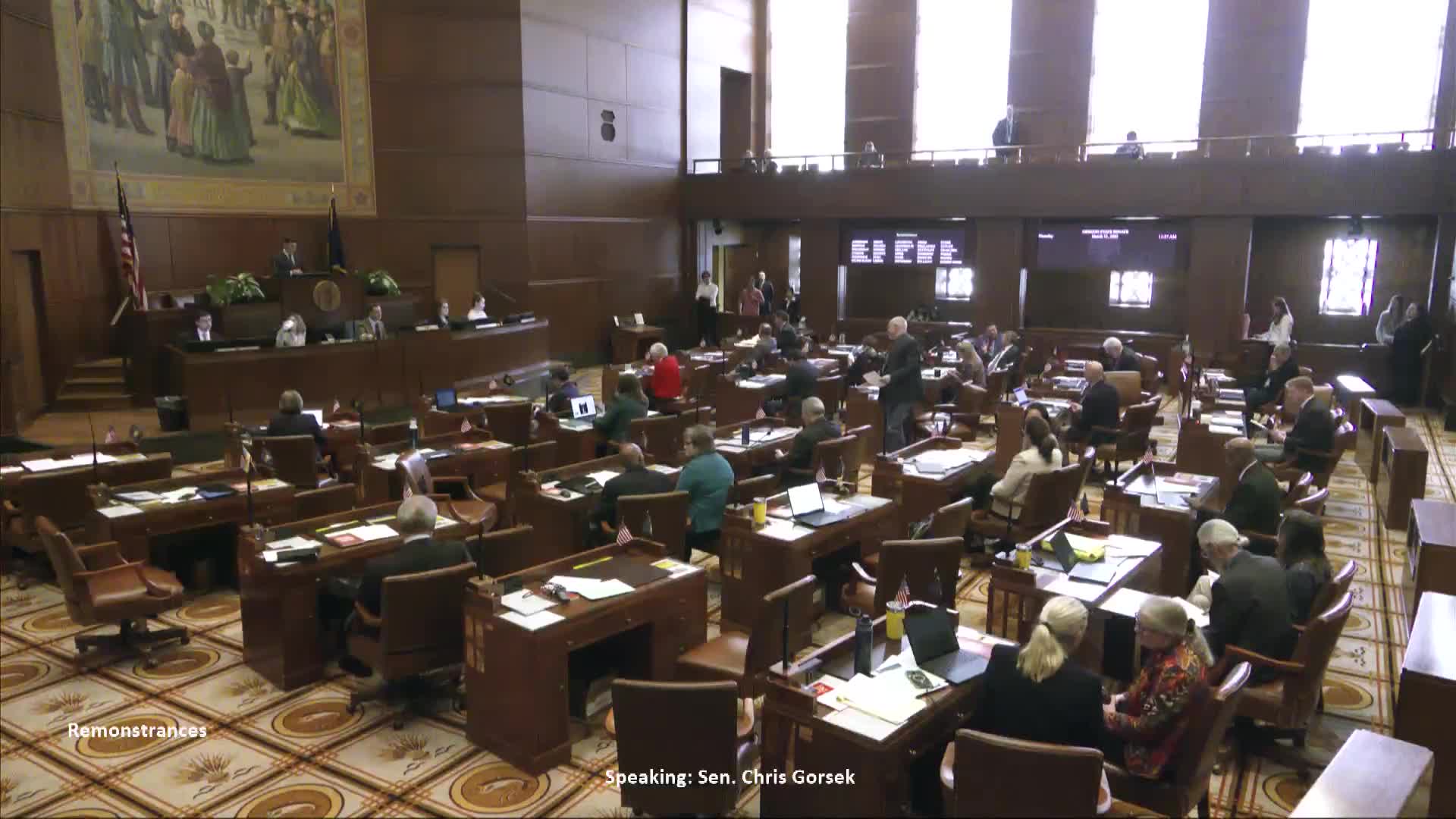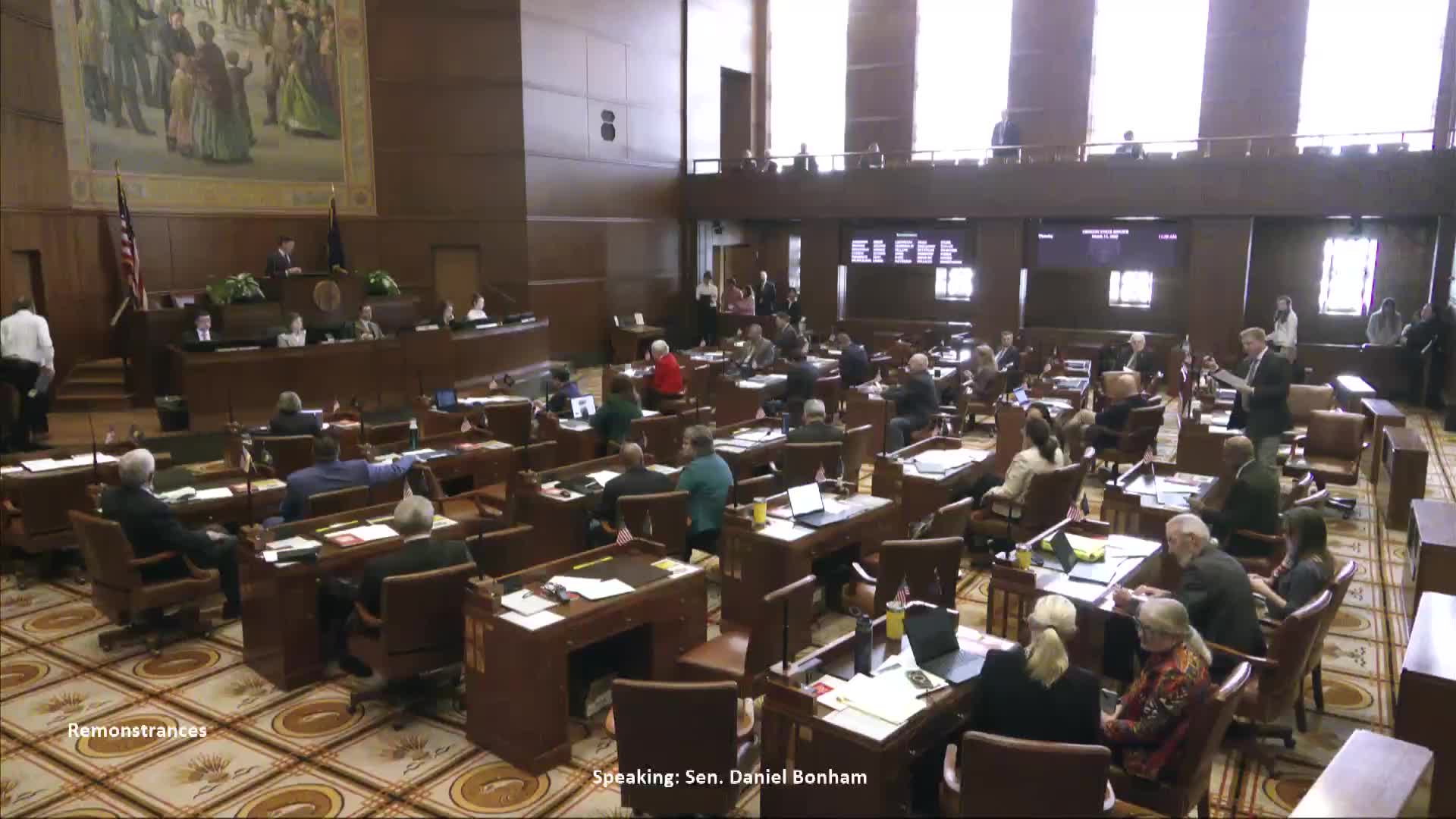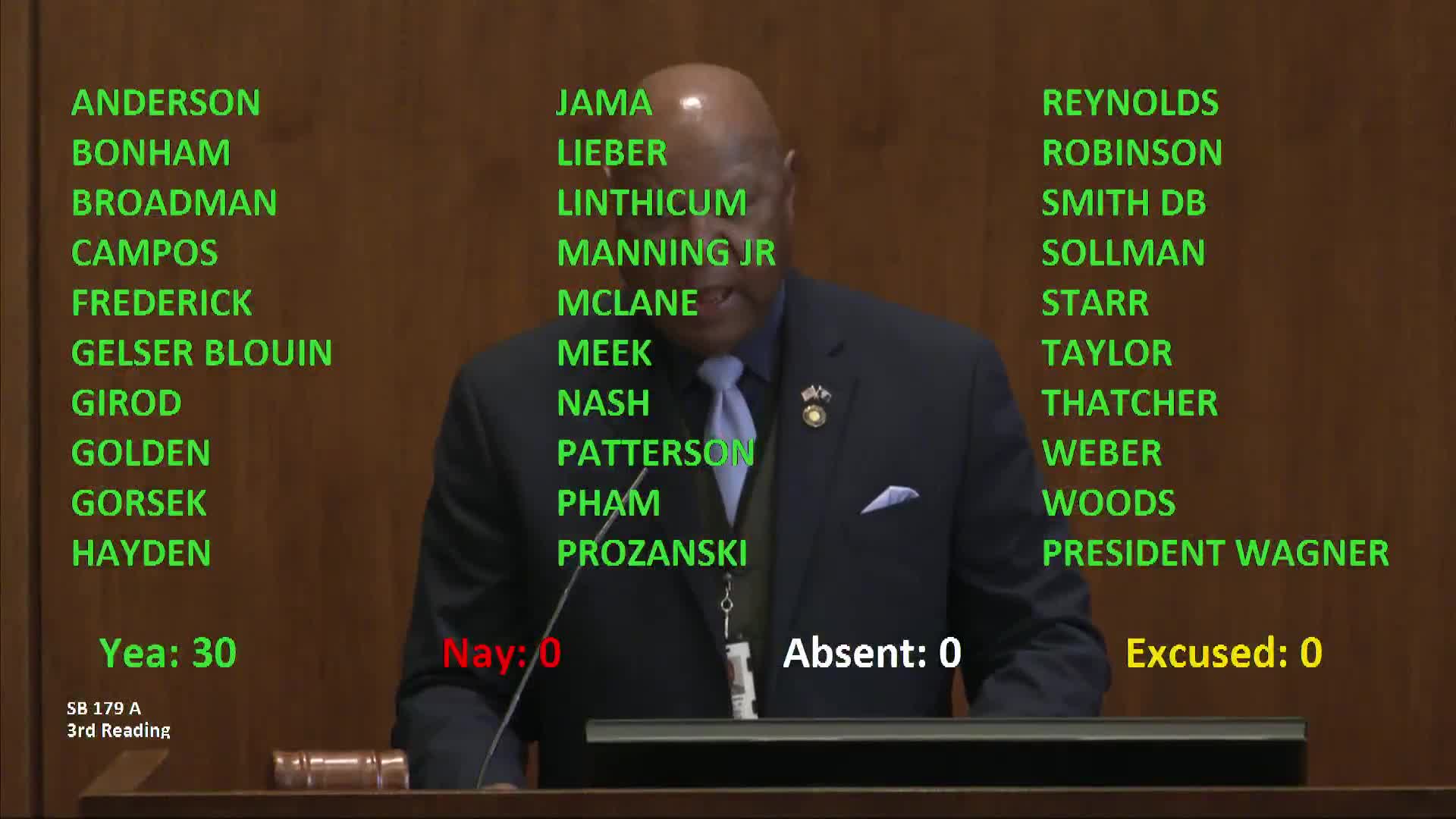Article not found
This article is no longer available. But don't worry—we've gathered other articles that discuss the same topic.

Senator Gorsek previews broad transportation legislative proposal, emphasizes multi‑modal approach and accountability

Senator Bonham faults Portland Water Bureau over Bull Run filtration project, cites large cost increases

